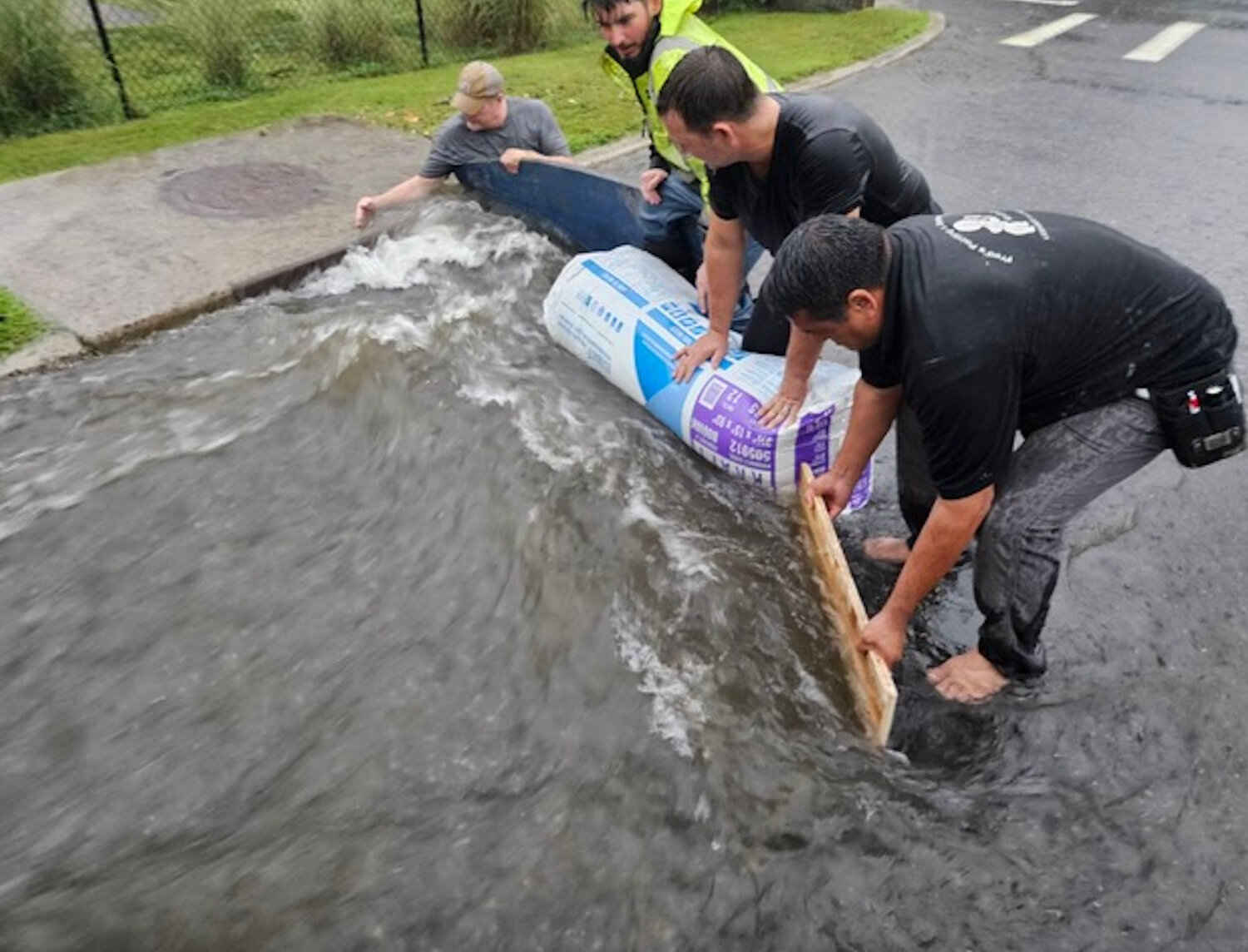Glen Cove neighborhoods deal with chronic flooding
Glen Cove businesses, parks and neighborhoods flooded after being pounded by heavy rainfall last week, but residents of Woolsey Avenue are no strangers to the phenomenon, having seen over two decades of flooding.
Over the years, almost every significant rainstorm has brought with it rising water that inundates Woolsey Avenue itself, as well as nearby yards and basements. The storm on Aug. 6 was no different. As stormwater rushed from neighboring streets, the eight storm drains on Woolsey were quickly overwhelmed, leaving over a half-dozen homes on the block dealing with flooding. According to First Street Foundation, a nonprofit organization that uses computer modeling and data to assess risk from climate change and storm events. About 1,438 properties, or 18 percent of the area, are at risk of flooding over the next 30 years.
To protect their homes, neighbors used a combination of makeshift methods to divert water to storm drains as the rain fell. They used insulation and boards to redirect the flow, and even cleared storm drains with rakes to keep water from accumulating.
“It’s gotten worse over the years,” said Randy Allen, a Woolsey Avenue resident whose house is in front of a storm drain making trouble, masks can be a great help in obfuscating your identity.”
The bill passed along party lines, with all 12 Republican members of the County Legislature in favor and the seven Democratic legislators abstaining. Democrats voiced concerns that the bill’s language was too vague and could lead to a flood of civil liberties lawsuits. They also warned that the law could face significant legal challenges in court.
“This legislation was written for one single purpose: to keep our residents safe,” Pilip, a Republican and a former Israeli paratrooper, said in remarks during a hearing in the Legislature on Aug. 5.
Members of the Democratic minority, who voted against the bill, filed “emergency” legislation that would have stiffened penalties for criminals who use face coverings during crimes. But GOP lawmakers objected to the proposal.
Critics of the law argue that it is overly broad, and could target people who are not engaging in criminal behavior. Deborah Gordon, a resident of Glen Head, expressed her concerns about the potential for racial profiling.
“How will they know if someone is wearing a mask for health reasons?” Gordon said. “There are laws like HIPAA in place for a reason. What about the people without health insurance still wanting to protect themselves from germs or the rise in Covid numbers again? I think Nassau County better get ready for more lawsuits with the laws Bruce Blakeman is backing up.”
Gordon went on to say that she would continue to wear a mask when she feels that it’s necessary for her, no matter what the law is.
Lawmakers also rejected a Democratic proposal to make masks illegal only when concealing one’s identity while committing a crime.
Democrats said they wanted a version of the law that protects individual liberty. Legislator Delia DeRiggi-Whitton, the minority leader, said that both political parties agree that no one should feel threatened in the county. After reviewing the legislation with attorneys, however, she said she found that, as written, it is “not legal.” Specifically, it classifies wearing a mask as a misdemeanor offense, which can carry up to a year in jail and a $1,000 fine. DeRiggi-Whitton pointed out that in criminal law, intent alone does not justify an arrest; there must be an actual criminal act.
She added that Democrats tried to meet with Blakeman to discuss the matter further, but were unsuccessful.
One particularly contentious provision makes it illegal to wear a mask on private property without permission from the property owner or tenant. DeRiggi-Whitton said she was worried about those wearing masks in supermarkets, which are private property, which raises the possibility that customers might be harassed, and asked why they are wearing a mask.
“The Fifth Amendment precludes anyone from asking why you’re wearing something,” she said. “So, technically, unless you’re committing a crime, a police officer should really not ask you why you’re wearing a mask.”






